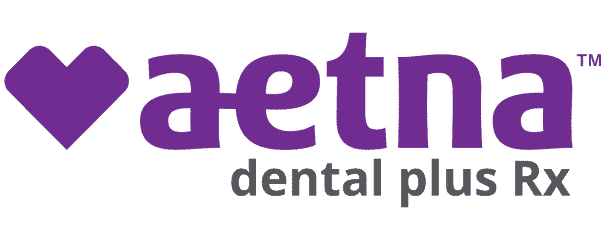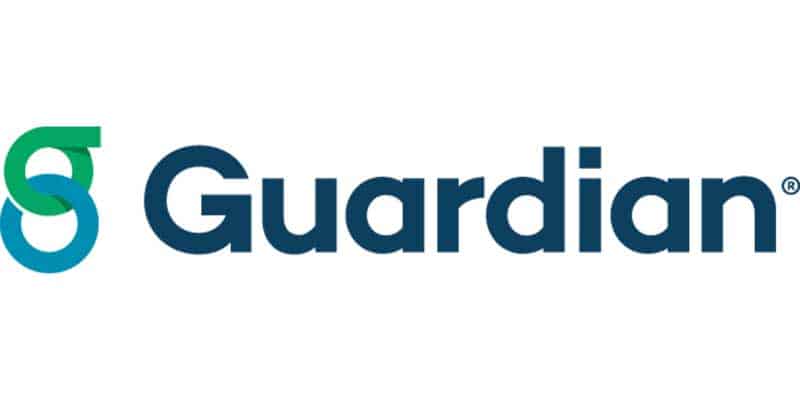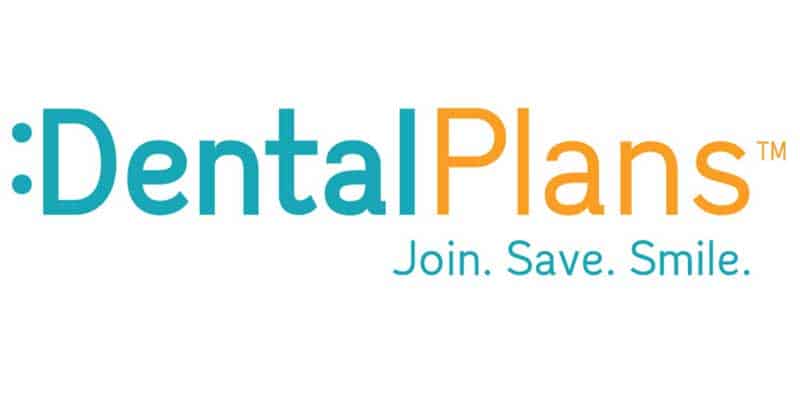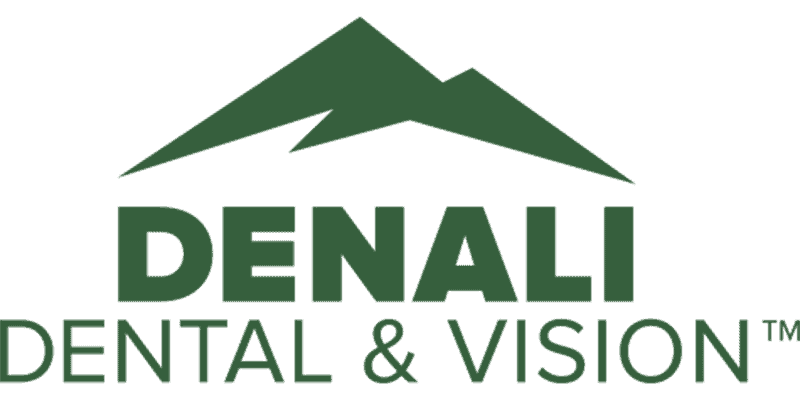Table of Contents
- How to Find the Best Posterior Walker - July 11, 2021
- TracFone vs Verizon: Which is the Best Mobile Service Provider for Me? - May 17, 2020
- Tracfone vs Cricket Compared: Which is Better? - April 29, 2020
A Guide to Picking the Best Dental Insurance Cover for Seniors
Did you know that one in four individuals aged above 65 has not visited a dentist for five or more years, according to the National Institute of Dental and Craniofacial Research (NIDCR)? Aside from that, more seniors with lower income and less education report that their oral health is poor.
Old age is inevitable, and as your body grows older, different organs start becoming vulnerable to various infections. Your oral health is no different, and it gets weaker with age, making you prone to diseases that call for special treatment. Special treatments will cost you a fortune, and it is terrible seeing your entire retirement earnings going to a dental clinic. But what is the way forward?
Thanks to medical advancements, we have top-notch dental solutions that will uphold your oral health. However, these solutions will cost a lot, and this explains why the low-income part of the population are reported to have poor oral health. The Original Medicare and Medicare Supplement plans do not cover routine dental checks, and this makes it even harder for you.
If you want to maintain proper oral health in old age, you will have to buy additional insurance that will cater to your regular dental expenses. You will come across several companies offering dental insurance for seniors, as it is a considerable concern, and always pick the best one. It is easy to get overwhelmed by the plethora of options in the market, but with the right information on how the whole thing works, you will be better placed to pick one.
Why Dental Insurance?

Your traditional Medicare cover is designed to be somewhat comprehensive, but it does not cater for routine health checks. Having it cater to regular examinations in all the various health aspects it covers would make it too expensive for many.
According to Medicare.gov, the government insurance program does not cater to dental care, supplies, and procedures. It does not also offer benefits towards regular services needed to clean and correct oral issues. But what does it provide in regards to dental care?
Original Medicare Part A offers individuals cover for specific services while they are in hospital. These include emergency and complicated dental procedures as determined by the medical experts handling the scenario and according to Medicare specifications. A typical example is when a dental procedure is needed as preparation for the actual treatment such as jaw diseases among others.
Medical plan B benefits apply when a medical practitioner does the examination needed before a heart valve replacement or a kidney transplant. However, these benefits will not cater for the care, removal, and replacement of teeth structures. The dental services should also be done by the expert who will perform the other service, regardless of whether they are a dentist or not.
Tips for Picking the Right Insurance Policy.
Dental insurance plans for seniors cover your oral health exclusively. It is easy to assume that they are available at a throwaway price. Well, you will have to pay some significant amount for your desired plan. Several plans are available for you, but not all of them are right. This way, ensure that you analyze all the available options before picking a particular one.
Compared to health insurance, dental insurance will cost you much less in premiums, but when the deal is too good, think twice. There is a catch to these low premiums. Dental insurance plans have an annual limit to their coverage ranging from $1000 to $1500 coupled with a deductible of around $100. This amount varies with the type of coverage and does not overlook it and then regret later on. Here are some other things to look out for when picking a suitable dental insurance plan for seniors;
-
Be Wary About Group Coverage.
Many seniors reap the benefits of being in groups where their dental insurance plans are paid for. According to the NADP, 92% of Americans with private dental insurance get it through a group. Standard group cover programs where the premiums are subsidized to members of that group include the Affordable Care Act, AARP, and Tricare among others. These plans are known for their benefits compared to individual plans, and people are quick to sign up for dental insurance through them. While the benefits are evident, ensure that you check the fine detail and decide if a plan is fit for you.
Overenthusiasm can make you jump into a group program and forget to look at the specific amount it covers or the exceptions that might affect you. This way, you will have a clear picture of what you are signing up for. If you are getting it through your employer, the chances are high that they will take the cheapest option. Such policies might not be sufficient to cater for all your dental care needs, and you should know this from the word go and be prepared to spend from your pocket what called upon to do so.
-
Compare and Contrast.
It is hard to point out the perfect dental plan as you might be forced to take a compromise on whichever plan you settle on. The internet is an excellent resource if you need to find out more about a particular plan. You will only get the best if you dig as much as you can about your options, then compare and contrast. Look at the premiums paid, amount covered and some of the clauses that will work for and against you. Remember that there is no ideal dental insurance plan. It all depends on what you need. One might be perfect for you but bad for another person. This way, look at the one that best fits your needs. Even if you do not find one that does not address all your concerns, you will better place to pick the one that offers the least compromise from the entire lot.
-
List of Dentists in the Network.

This is a crucial aspect to look at since you do not want to travel to another town every time you need to see a dentist. Indemnity plans allow you to pick your dentist of choice, but they are costly. The regular Preferred Provider Organization (PPO) and Health Maintenance Organization (HMO) plans to restrict you to the dentists within their network.
If you already have a preferred dentist, ask them about the network they are on. This will guide you when picking the insurance plan, especially if you do not want to change them. However, you could be forced to change your dentist if the one you have is not on a good network. Dental services are uniform across all service providers. It might take a few months to adjust to the new one, but you will be fine.
When dealing with a new dentist, watch out when they say that you need a lot of unexpected work. Dentists take advantage of insurance covers and can inflate costs to get as much as they can from your policy. This could reduce your yearly limit and leave you paying for dental care costs from your pocket later on.
When picking a dentist, conduct your due diligence and get the best from the network. Mind their location and find one that won’t force you to travel for long distances to get an oral checkup.
-
What does the Policy Cover?
It is no point taking a dental insurance cover that has restrictions. This makes it more or less similar to Medicare and does not address the problem that prompts you to buy this insurance in the first place. Most dental plan descriptions say that they cover everything but then go and specify how much they can cover for specific conditions. These are the finer details that you should watch out for.
Most of the plans are divided into tiers which specify the level of dental care you can get and the limits. In some cases, you might not require the complicated dental procedures, and here, picking a plan that covers regular checkups and basic dental treatments is sufficient. In a nutshell, ensure that you know what will be included and what will not before signing up for a dental plan.
-
Reviews.
Companies that offer dental insurance plans for seniors know how to describe them in a way that they appear to be perfect. Well, this is part of marketing, and if you run a business, you should be probably doing the same. However, there is always a different angle of these coverages that you can never know from their descriptions. Find out what people are saying about the dental plans and whether they live up to their billing or not.
The internet is an excellent source of reviews and checks on independent review sites to find out more about a particular dental insurance plan. Here, you will understand more about one from a customer’s perspective. If you have friends and colleagues who are insured by different companies, ask them about their policy. You can easily land a suitable dental insurance plan by just asking around.
My Top Recommendations.

Aetna has been offering insurance plans since 1853. It started offering life insurance plans and then health plans from 1899. It provides three dental insurance plans for seniors. Their dental policies for seniors vary from $30 to $60 per month and the rates depend on a variety of factors. The three dental plans are;
- The Dental Maintenance Organization plan is a cheap insurance plan that allows you to pick a dentist of choice. You need a referral to see a specialist, and the plan has no deductibles and annual maximums. Note that once you select a preferred dentist, you cannot change to another one for a full year.
- The Preferred Provider Organization plan allows you to visit any dentist you want without a referral. If you decide to use a dentist within the network, you pay less. If you go outside the network, there is coverage for some amount of the total bill. This plan has deductibles and annual maximums.
- The Dental Indemnity plan lets you pick any dentist in the USA without having to specify a primary one. There is no network of dentists and no referrals are required. It offers the highest coverage amount, but this comes with high deductibles and yearly maximums.
The DMO plan is the most cost-effective one. However, it covers 100% for preventive care and 75% orthodontic with no maximum. The PPO plan is useful if you plan to include your family members. The deductibles within the network are $50 for you and $150 for a family member. It fully covers your preventive care. The Dental Indemnity plan is the most flexible option but will cost you more. You can see any dentist and need no referral.
You can manage your insurance cover from Aetna on a secure online platform. If you have any queries, feel free to reach out to them on their customer service number. One of the major complains about this company is about their customer service representatives on the phone. However, their online platform is beneficial and has helped to resolve any issues quickly.
Pros.
- Affordable compared to other insurance providers.
- Many queries can be resolved using their online tool on the official Athena website.
- It has a wide variety of coverage levels.
- Wide network of dental specialists.
- They have an assistance program for those finding it hard to pay premiums.
- No waiting periods once you sign up.
Cons.
- The plan is not available in Massachusetts.
- $20 processing fee for new members.
- Difficult to contact a customer service agent on the phone.
Verdict
Aetna is a good option if you are looking for an affordable dental insurance plan. It offers various plans, and you can always seek help from the assistance program if you cannot pay the premiums. It is one of the best in the market and worth trying.

Guardian is known for offering group insurance to a wide variety of groups in the USA for many years. Their insurance products have diversified over the years, and it is no surprise seeing their dental plan for seniors ranking among the best. It is one of the largest dental insurance providers in the country, and it offers individual policies with fantastic coverage options for one to choose from.
Guardian is known for making it easy for one to find a dental plan that will suit their needs. They have a vast network of over 100,00 participating dentists spread up to over 360,000 locations countrywide. Their online tool is effective, and you can use it to find a plan and dentist of choice.
Guardian’s dental plans fall into two categories which are the Preferred Provider Organization and the Dental Health Maintenance Organization. These two plans are available in most states, but some only allow either depending on the regulations.
- In the PPO dental plan, you pay for a monthly premium for coverage of a specific percentage of your dental costs. The yearly maximum caps the dental insurance payout for the year. You won’t need referrals to see a specialist, and you can visit any dentist you want. However, visiting one in your network will save you some money. The current number of dentists in the Guardian networks stands at 124,000 spread across 363,000 dental offices across the country.
- In the DHMO plan, you pay a premium and copayment based on the services received. There are no deductibles and annual maximums as long as you stick to the dentist you picked as your primary provider. You will have to submit referral requests to the Guardian before visiting a specialist. The DHMO network includes 12,000 dentists spread out across 52,000 office locations.
The cost of dental insurance at Guardian ranges from $16 to $60 depending on your state, level of coverage you pick and how soon you need the dental work completed. Remember that the prices vary with the location and whether you select an individual or family plan.
You can get a quote from the Guardian website in three simple steps. Once you answer the questions presented there, you will receive a detailed quote. The three things you will be asked about are your zip code, desired plan, and any other preference, such as the protection levels and services to be covered.
Pros.
- A vast network of dentists.
- Preventive care costs very little.
- The online cost estimator makes it easy to get a rough idea of how much your desired plan will cost.
- There is an option to stick to your preferred dentist even if they are not on the network.
- No waiting periods for preventive care.
Cons.
- Some procedures have a long waiting time.
- Not available in all states.
Verdict.
Guardian understands that all of us have varying insurance needs, and they are willing to tailor their services to craft a suitable insurance plan for their customers. They do not impose one-fits-all coverage plans. There are plans for every budget, and their extensive network of dentists makes it easier to find a suitable specialist.

Dental discounts come in handy if you wish to reduce the cost of an unexpected dental emergency or when you want to spend less on dental care.1Dental is the best at selling dental discount plans for a low annual fee, something that will help you to save on your dental expenses all year long.
1Dental is not a typical dental insurance plan, but it offers benefits that make it a good option if you want to spend less on dental care. It is an alternative to the traditional dental insurance plans, and it helps to cater for the costs of treating pre-existing conditions that your policy might not cover. With this discount plan, you can also save on cosmetic dental procedures that are not covered by insurance plans.
1Dental has two plans that are connected to different service providers called Care500 and Dental Access. There are links to the list of dentists within the networks, and you can use this to find out whether your preferred dentist is on the network. The cost of enrolling in either plan is the same, but they have different benefits. For instance, you can start enjoying the Care500 plan benefits as soon as you pay for it, but more dental care providers take the Dental Access plan. Read on to find out more about these two plans;
- The Care500 Plan is offered in collaboration with Careington. It provides the most savings on your dental costs, and the benefits are available immediately you pay for it and get your membership card. This instant availability can lead to significant savings especially if you have unplanned dental emergencies. These services are available at discounted rates ranging from 20% to 60%. The specialist work is offered at a 20% discount. This plan is one of the oldest dental discount plans and is accepted at over 100,000 dental service providers.
- The Dental Access Plan is backed by the Aetna Dental network, and it has a more extensive network of specialists compared to the Care500 Plan. You can pick a dentist from a list of over 158,000 service providers. It offers a smaller discount compared to the Care500 plan, and you could be required to wait for seven to ten days for the membership card to be processed before you can enjoy the benefits. Here, the dental discounts vary from provider to provider as opposed to the zipcode as it was seen with the Care500 plan.
The 1Dental plans are not insurance plans, and you do not have to worry about deductibles and coverage. You get a discount on dental services such as X-rays, extractions, and treatment. The membership fees are grouped in tiers depending on the members to be covered in that plan. You can buy a dental discount plan by calling the number on the 1Dental site and speaking to a representative.
Pros.
- Affordable standalone dental discount plans.
- Little or no waiting period.
- It can include anyone in your family.
Cons.
- It is not a dental insurance cover.
- Not all dentists accept it.
Verdict.
Dental discount plans are great options for reducing the cost of dental care. They can be used on their own or to supplement a dental insurance plan that does not cover all your needs. They are much more affordable with their small upfront costs.

Offering dental coverage to over 1 million members since 1999, DentalPlans is undoubtedly one of the top picks for dental coverage for seniors. This plan comes with a vast network of over 100,000 dental service providers with huge savings when you pick one from the list.
This insurance service provider offers you over thirty dental savings plans and coverages to pick from. You can use their online tool to make comparisons and find how much you save by choosing a particular one. Their site is easy to use, and once you sign up, it becomes easy to download your dental plan card and see how many different procedures will cost you. You can use their online resources to understand more about the plans offered. This way, you can know what you are signing up for.
The cost of dental insurance varies depending on your state. You can use their plan by paying an annual fee to gain access to a network of dentists who will charge you less for the dental procedures listed. The rates are predetermined, and you will know how much you are required to pay for in advance. The savings range from 10% to 60%.
Dental plans offer you a great option that can act as your insurance policy or even supplement it. It all depends on your oral health, and it can be used to cater for your out of pocket costs when getting dental care. You can take one for your family and save on their dental care costs. There is no yearly limit on the discount you can get.
Pros.
- You pick a plan depending on dentists, procedure, and amount to be discounted on their site.
- Most plans have extra benefits, such as chiropractic care and ENT procedures.
- It is easy to find a suitable plan and compare it with others to know how much you will save.
Cons.
- Its network does not cover South Dakota and Vermont.
Verdict.
Dental plans offer a great option if you are looking to save on your dental costs without taking the traditional insurance plans. It uses a vast network of dentists to offer you up to 60% savings on both preventive and restorative dental works.

United Healthcare dental insurance offers cost-effective plans for seniors. It has a network of over 100,000 dentists, and this makes it convenient when getting preventive care and other dental procedures. The coverage increases in the second and third years, and once you hold it for this time, it becomes cheaper to get a wide variety of dental care services.
The dental plans come in four options depending on your needs, and it is easy to find one from the list. These plans cater to preventive care such as regular cleaning, fillings, and X-rays among others. There is no deductible for preventive care services. Here are the four plans and what they offer;
- The Dental Saver plan provides an annual maximum benefit of $1000. The amounts insured for increases in the second and third years. The deductible is $100 per insured person, and the average monthly cost is $35. This plan is suitable for people who are operating on a shoestring budget.
- Dental plus offers an annual maximum benefit of $1000 with the amount insured increasing in the second and third year. The deductible is fixed at $100 per insured person, and the monthly cost stands at $54. This plan is suitable for people seeking dental services from specialists who are not in the network.
- The dental Basic plan fully covers preventive care health services. The other coverages increase in the second and third years. The annual maximum benefit is $1500, and the deductible is $100 per insured person. The premium per month is $44. This plan is suited for people who need comprehensive coverage.
- Dental Deluxe plan covers your preventive care with the other amount increasing yearly. The annual maximum benefit is $2000, and the deductible is $50 per insured person. This plan costs $51 per month, and it is suitable for people who seek to have dental implant services.
Note that the deductibles apply to basic and primary services only. The availability of all the listed plans depends on your state of residence. This plan has an extensive network of dentists, but if you choose to use one outside the network, you are required to pay for the services and then claim the amount by filing a reimbursement form. Remember that you will pay more for the insurance if you want to use dental service providers outside your network.
Buying insurance does not get any easier than it is with this cover. You can do it within a few minutes from the comfort of your home. UnitedHealthcare’s online tool will give you a lot of information about the available plans and even give you a quote. Once you pick a plan, answer a few questions about your preferences and agree to the terms and conditions, you will be prompted to make the payment, and your cover will be on effect. If you need any assistance buying the insurance, feel free to contact a customer service representative on the phone.
UnitedHealthcare Dental insurance comes with additional benefits on healthcare services that are not directly associated with your oral health. For instance, the plan will cover some hearing care benefits at no extra cost. You will also get annual discounted hearing exams and a small amount to cater for hearing aids.
Pros.
- No age limit making it suitable for people who are not seniors.
- Four distinct plans to pick from.
- Simple to get a quote and buy insurance.
- Vast provider network.
- Additional hearing and vision benefits.
Cons.
- No distinct plan comparison.
- Fixed annual maximum benefit.
Verdict.
UnitedHealthcare dental insurance is an excellent option for getting extensive dental care from a wide variety of experts. The coverage increases after the first year, making the overall plan cost-effective and the additional benefits add more value to the policy.

Denali dental and vision offers three distinct plans that cover seniors and people of all ages as well. The firm runs on the idea that dental care should be affordable and people should not be forced to wait before they can enjoy the benefits. The plans are available at affordable prices, and they are designed to beat the standard market prices with an option for additional vision insurance.
The dental plans offered by Denali are through renaissance PPO networks. You can pick any dentist, and if they are not in the network, the insurance cover will cater for part of the treatment cost. The plans available here offer assured acceptance and no waiting periods seen with many insurance plans out there. Here are the three plans and what they offer;
-
Denali Summit Plan Dental Insurance.
Here, the annual maximum allowed grows progressively to the fourth year. The ceilings are $1200 for the first year, and this growth takes it to $6000 for the fourth year. The deductibles are $100 for in-network and $200 for out network. This plans fully caters to the cost of preventive care services, 50% of the diagnostic services and 30% for the primary and basic services. All these percentages of the amounts covered increase with each year. The plan includes orthodontic services whose coverage is low in the first year but increases to a maximum of $1500 in the fourth year.
-
Denali Peak Dental Insurance Plan.
Most of the benefits of this plan are similar to the summit plan. The maximum stands at $1200 for the first year, and it increases to $6000 in the fourth year. The coverage percentages in the early years are lower than those in the Summit plan, and the deductible is $250 for every insured person. This plan covers preventive services at 80% for the first year with the amount of diagnostic and major services coverages being 50% and 30% respectively.
-
Denali Ridge Dental Insurance Plan.
For this plan, the annual maximum is $750 for the first year and then $1500, $2000, $2500 for the second, third, and fourth years. The deductible is $100 for in-network and $200 for out-of-network. This plan pays for half of the diagnostic services with the percentage increasing to 80% in the fourth year.
There are many more details about the Denali dental insurance plans, and their website makes it easy to compare them and find a suitable one for you. Buying is easy, and all you need to do is to select a dental plan, coverage to start and then enter the information for payment processing. If online purchases are not your cup of tea, contact a customer service representative, and they will be glad to help you find an optimal insurance cover.
Pros.
- Several plans to choose from.
- The annual benefits increase with each year.
- Reasonable deductible amounts.
Cons.
- The coverage amount is low in the first years for some plans.
Verdict.
Denali Dental insurance offers affordable plans without having to wait for long to start enjoying the benefits. They reward loyalty with increasing coverage amounts for every year, and if you stick around for four years, you could find yourself having one of the best dental insurance plans. They offer free cleanings every year, making them ideal for people with conditions such as diabetes, gum diseases and plaque buildup among others.
-
Delta Dental Insurance Plan.

This company has been offering dental insurance for over 50 years. It has a network of over 140,000 dentists in its network and has provision for out-of-network coverage. The coverage is provided in 15 states which is a bit of a downside. However, it is offered in the districts of Columbia, Puerto Rico, and Virgin Islands.
The company has an online portal which makes it easy to search and find a reliable dentist in the network. You can get services outside the network, but this will cost you more. There are deductibles on some plans and copays are also permitted on some of the plans.
Pros.
- It is easy to manage your claims on the internet.
- They have a mobile application that makes the whole process easier.
- Customizable policy options.
- Picking an in-network dentist reduces the cost.
Cons.
- Coverage options are not available in all states.
Verdict.
Delta Dental offers a wide variety of plans for individuals, families, and employers. You can pick a plan depending on what you need, but there are some limitations depending on the state you live in.
Frequently Asked Questions.
Discount dental plans are easy to use alternatives to traditional insurance covers. The members who sign up for these plans get access to an extensive network of dental service providers. With this plan, the service providers agree to offer specified services at a discount to members of the discount plan. They work like a club membership where you pay an annual fee and get savings on any services you get while enrolled in the network.
The benefits of dental discount plans include the ease of use and the fact that you do not need to do a lot when signing up. There is no much paperwork involved or restrictions based on pre-existing conditions.
Dental discount plans differ from dental insurance plans based on a couple of factors. The features of a typical dental discount plan include;
– No annual limits.
– No paperwork involved.
– No health restrictions.
– Some plans include discounts on specialized services such as cosmetic dentistry.
– Membership fees are affordable.
Features of a typical dental insurance plan include;
– Limitations, annual maximums, and deductibles.
– Hectic paperwork and checks when applying for a plan.
– Limitations on preexisting health conditions.
– Some specialists, such as cosmetic dentistry practices are rarely covered.
– Members pay for monthly premiums.
– Waiting periods on major dental procedures.
With the mentioned characteristics, dental discount plans can be effectively used to complement your regular dental insurance cover. This will help you to save more, especially when you have exhausted your annual maximum coverage and have to pay for dental care from your pocket.

Yes, it is recommended that the dental service provider conducts a check and gives you an estimate of what the treatment will cost. They should come up with a pretreatment estimate which is used to verify coverage of treatment as well as give you an estimate of our out-of-pocket cost. These estimates are particularly important for complicated procedures such as dental implant procedures among others.
There are no perfect dental insurance plans, and even the top ones mentioned here might not be close to what you term as perfect. Dental insurance has evolved over the years, and service providers are striving to tailor the plans to fit the customer requirements. This way, a plan that suits you might be unsuitable to your colleague. This way, the best way to go when looking for the perfect dental insurance plan is to spell out your needs and requirements beforehand. After doing this, it will be easier to find this ‘perfect dental insurance plan,’ since you will do it by checking whether it addresses your needs exhaustively.
Top Mistakes to Avoid when Buying Dental Insurance.
Your dental insurance is an extremely critical part of your retirement life, and you must land the right one. The tips for picking a suitable one have been mentioned, but some mistakes can mislead you into selecting a wrong insurance plan. This way, it is vital to be wary of some of the mistakes people make when buying dental insurance and here are some of them;
Focusing on the Premium and Deductible.
Most of us are not experts in dental insurance and might not be familiar with some of the terms. However, the most common terms that define insurance policies are the premiums and deductibles. It is easy to focus on these terms and forget about other essential things that determine whether the plan is right for you or not. You will never know the importance of these other aspects of your dental insurance cover until you are hit with an emergency and find that you have to pay a lot from your pocket.
Overlooking the fine print.
Dental insurance service providers are smart in the way they present their policies to potential customers. They will highlight the things that you will be concerned about, such as the deductibles and premiums and then explain the unfavorable parts further below. The fine print is critical and takes your time when going through it. The highlights only explain what the insurance will cover in typical scenarios for instance in cases where you need preventive care and basic dental procedures done. The fine print comes into action when you get dental emergencies.
Sticking to one Provider.
It is easy to be passionate about a particular insurance provider due to a couple of factors. You could have got a referral from a friend and decide that you want to get your cover from them even without checking what they offer. Do not be too sensational about insurance service providers and look at it from a business perspective. Pick an insurance provider that gives you the best value as these emotions can make you stick on an unsuitable one. Even if you get a referral or find yourself leaning towards a particular service provider, always compare the facts and make sure that you get the best value for money.
Getting Too Much Insurance.
You can pay up too much for your insurance even if you do not need the cover. Do not agree to pay above the optimal rates for coverage that won’t be helpful for your scenario. For instance, some covers will take care of all your dental care costs, but you will find that the premiums are too costly. Always seek advice on what you want to be covered on the policy, and this will help you to pick a suitable one without having to pay over the roof for it.
Skipping Insurance.
It is easy to skip dental insurance because you are healthy. This is a gamble that can go either way. If you manage to get through your old age with minimal dental problems, then your decision will be justified, but this is very unlikely. Dental issues are prevalent in old age since your white blood cells, and body defense mechanism are not very strong. You should take dental insurance even if it covers a specified amount of the costs since you never know when an emergency will strike.
Conclusion.
Buying dental insurance is not an easy task if you are not informed about the options. The goal is to find out as much as you can about the various policies in the market and then use this information to make a proper decision. Take your medical condition into account, and if you have a history of oral health issues, you might be required to take one that suits you.
The premiums you will be required to pay for dental insurance will be lower than what you pay for typical health insurance cover. These covers are perfect for preventive care such as checkups, cleanings, and x-rays, among others. Do not let dental care take up a lot of your money during retirement and find a suitable insurance cover.

